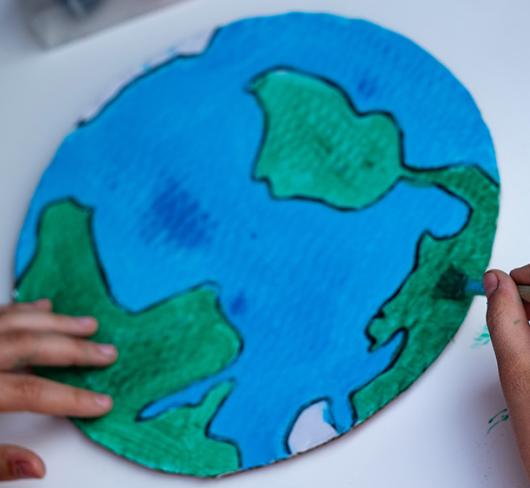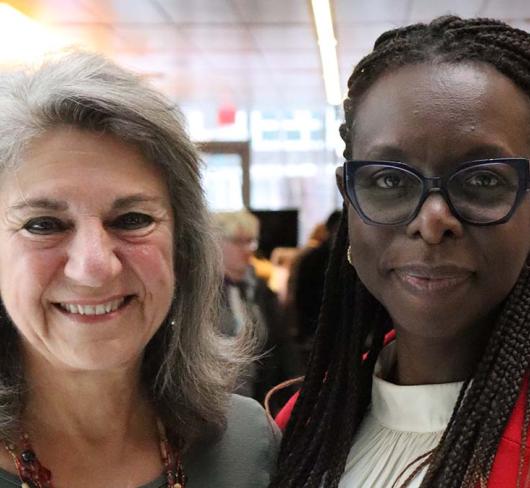Using Bottled Water? Maybe it's Time to Think Again
Bottled water is everywhere these days: we use it at home, at our professional meetings, and in our schools. In fact, 30 percent of Ontario schools have contracts with bottled water companies1 and three in 10 households in Ontario with a municipal water supply drank primarily bottled water in 2006.2 Globally, 154 billion litres of bottled water were consumed in 2004, up 57 percent from five years earlier.3
Many people believe bottled water is purer and safer than tap water. But is that true? And what are the hidden costs?Here are three reasons to consider curbing your use of bottled water:
1. Consider the quality
- Bottled water is less stringently regulated than municipal drinking water.4
- Bottling plants are inspected only once every three to six years, while municipal sources are regularly inspected. (City of Toronto water is inspected every four hours.)
- Industry treatment processes do not guarantee safety. In 2004, Dasani (a Coca-Cola company) withdrew half a million contaminated bottles. Some scientific studies have found concentrations of arsenic and mercury in bottled water.5
- Some bottled water comes from municipal water supplies making it essentially “water transformed into water.”6
- Bacteria in water can multiply rapidly when stored over long periods or exposed to heat.7
2. Consider the impact on the environment
- Making plastic bottles for North America alone consumed 17 mil- lion barrels of oil.8
- Manufacturing a plastic bottle generates 100 times more toxic emissions than making a glass bottle.10
- The bottling process produced more than 2.5 million tonnes of carbon dioxide in 2006,9 in addition to the emissions created by transporting water.
- Plastic water bottles have become the fastest-growing form of municipal solid waste in North America. In Canada, only 15 percent of water bottles are recycled.11
- The bottling industry draws up to 18 billion litres of water per year from Ontario’s water supply, much of it from underground aquifers that are the source of water for nearby streams, wells, and farms.12 Residents in Tweed, Northumberland, Mono, and Grey Highlands have officially expressed their concerns about the impact on their underground water sources.13
3. Consider the cost
- Bottled water can cost between 240 and 10,000 times more than tap water, even though a significant portion comes from municipal taps, and companies pay little or nothing for water taken from aquifers.14
- Through exclusivity contracts in schools, Coca-Cola (Dasani) and PepsiCo (Aquafina) attempt to turn students into life-long consumers of their products, and foster the corporatization of student space.15
Notes:
1. Froese-Germain, Bernie et. al. Commercialism in Schools: Who’s Calling the Shots. Ottawa, ON: Canadian Teachers’ Federation and the Canadian Centre for Policy Alternatives, 2006, p. 9
2. Households and the Environment. Ottawa, ON: Statistics Canada, 2006, Catalogue no. 11-526-XIE, p.10
3. Arnold, E. & Larsen, J. Pouring Resources Down the Drain. Earth Policy Institute, February 2, 2006. Available at earth-policy.org/ Updates/2006/Update51.htm
4. Bottled Water FAQS. Toronto: Canadian Environmental Law Association, 2004, Available at cela.ca/faq
5. Clarke, Tony. Inside the Bottle: An Exposé of the Bottled Water Industry. Ottawa, ON: Polaris Institute and Canadian Centre for Policy Alternatives, 2005, p. 4
6. Ibid. p. 39
7. Questions and Answers on Bottled Water: What is Safe Storage and Use of Bottled Water. Ottawa, ON: Health Canada,” August 7, 2007 Available at hc-sc.gc.ca/fn-an/securit/facts faits/faqs_bottle_watereau_embouteillee_e.html#A4.
8. Is Bottled Water Better? Union of Concerned Scientists, June2004. Available at ucsusa.org/publications/greentips/is-bottled- water-better.html
9. “Bottled Water and Energy Factsheet.” Oakland CA: Pacific Institute, 2006. Available at pacinst.org/topics/water_and_ sustainability/bottled_water/bottled_water_and_energy.html
10. Eaton, Janet M. Bottled Water – Environmental Issues and Other Concerns in Canada and Beyond. Sierra Club of Canada, June 2004, p. 55. Available at sierraclub.ca/atlantic/programs/ economies/water/SCCCorpWPPublicWaterApril2005B.pdf.
11. Ibid. p. 56
12. Ibid. p. 37
13. Ibid. pp. 32-37
14. Clarke, p.4
15. Froese-Germain, p. 9

